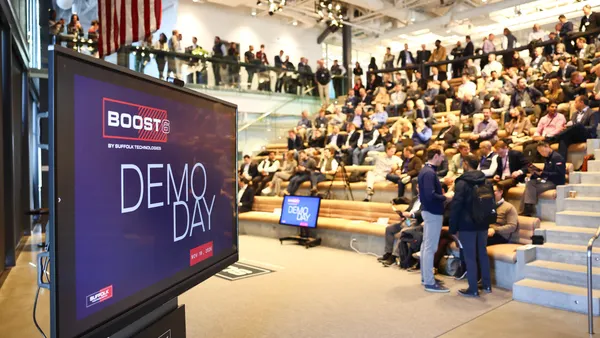Dive Brief:
- In an opinion piece in USA Today, Brendan Bechtel, fifth-generation president of construction and engineering company Bechtel Group, urged U.S. federal and state leaders to make investing in the country’s infrastructure a top priority so that future generations don’t "inherit a crumbling, unsafe, environmentally unfriendly, productivity-choking system several generations old."
- Bechtel suggested that the government use public-private partnerships (P3s), with Canada’s Infrastructure Ontario as a model, to underwrite critical projects around the country. He cited Congress' proposal for an Infrastructure Investment Bank with a non-governmental oversight board as a step toward a larger, nationwide plan.
- Bechtel wrote that an overhaul of the nation’s infrastructure is also an opportunity to put thousands of people to work and promote sustainability through the use of stronger, recyclable materials that will perform better with less impact to the environment.
Dive Insight:
"Chronic under-investment has led to closed and dangerous bridges, congested roads and highways, inadequate port capacity and poor rail safety and performance," Bechtel wrote. "The time has come for a change. Smart investment — that leverages private sector innovation and technology — will save money later, stimulate our economy through the creation of good-paying American jobs and make our country more competitive."
It’s hard to imagine Congress being able to organize around a comprehensive infrastructure program when it has taken years to produce a highway funding bill that will last longer than two years. The American Society of Civil Engineers gives the U.S. a grade of D+ on its infrastructure.
As Bechtel mentioned in his piece, Canada is a leader in P3 models. For instance, Toronto officials announced they saved $2 billion using a P3 for a current light rail project, and Texas officials credit a P3 for the early opening of its revamped LBJ Express highway.
Bechtel also made a pitch for the use of technology to create a "smart" infrastructure that can interact with its environment. Researchers in Norway are on that track with a preliminary discussion about energy-producing "power roads" to replace some of their coastal highways, but Bechtel takes the concept to another level.
"A world-class approach to infrastructure will produce integrated systems that sense the environment, analyze Big Data and act autonomously and instantly to increase efficiency and minimize risk," Bechtel wrote. "Imagine a dam that not only senses rapidly rising water levels and dispatches flood control commands that divert upstream water flow but also adjusts traffic signals to reroute vehicles away from flood zones and triggers early-dismissal advisories for schools in high-risk areas. The result: smooth traffic flow, less pollution, reduced stress on bridges and roads and — most important — enhanced safety for everyone."













